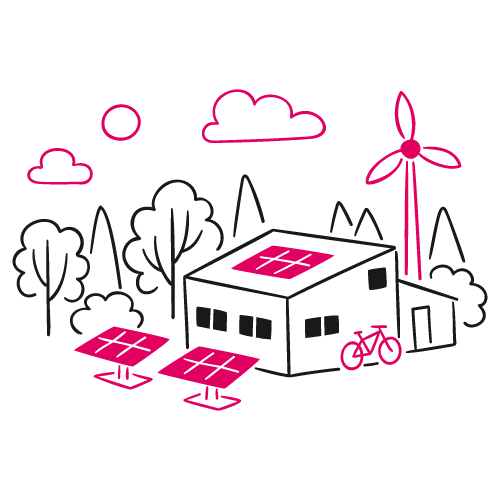Allison Guthrie was on her way to class at the University of Calgary when she spotted a poster in the science building that asked: “Do you have ideas about climate change?”
Allison, a fourth year plant biology student, thought, “Yeah, I do.”
This modest thought-provoking advertisement was for an innovation challenge presented by Experience Ventures, a national program powered by the Hunter Hub for Entrepreneurial Thinking at the University of Calgary, in partnership with the Office of Sustainability.
A community hub, the Hunter Hub supports entrepreneurial student experiences for all disciplines, enables faculty to lead innovation, and works to expand a growing community of innovative thinkers. Hunter Hub powers the Experience Ventures program, which partners with 12 Canadian post-secondary institutions and aims to provide students with the knowledge and resources to seize opportunities to create a better future through cultivating entrepreneurial and innovative thinking skills.
Allison knew she could leverage her knowledge of plant biology to help create that better future. The goal in the Experience Ventures challenge was to create an impactful and feasible project idea that, if implemented, would create climate change solutions in Southern Alberta.
A solar powerhouse
“Climate change is a very broad topic,” she explains. “Many different industries are involved, and there are political challenges when dealing with alternate energy sources.”
But Southern Alberta also has a unique advantage. “It is super sunny and super windy,” Alison explains, noting that wind power makes up only 9% of Alberta’s energy production, and solar makes up only 0.1%. “It’s not making up as much as it should be.”
Her unique experience in plant biology gave Alison an idea: crop rotation.
“Farmers don’t plant the same crop in the same field every year. They rotate them around because different crops have different pests and use different soil nutrients. Most farmers leave a field fallow every five years—they don’t plant anything in that field to allow the soil to recover.”
Alison and her team, Rotate Renewables, proposed a new type of Alberta crop. “You grow electricity in your fields.”
They created a system in which banks of portable solar panels are set up in fallow fields to gather and store power from the sun. The equipment couldn’t be too heavy, or the soil would compress, and they had to leave spaces for rain to pass through. Solar panel technology has gotten lighter and more efficient in recent years, and portable solar panels that can be quickly and easily set up in an open field are more viable than ever.
Growing their own future
The Experience Ventures challenge judges were impressed with Rotate Renewables’ proposal: they awarded second place to the “growing electricity” concept. She credits their success to more than just a cool idea: thanks to the challenge’s parameters, they applied entrepreneurial thinking to their proposal.
Experience Ventures facilitates entrepreneurial thinking placements, such as this climate change solutions for Southern Alberta challenge, to give students the ability to participate in structured, short-term opportunities (with honoraria) that will empower students to develop and apply entrepreneurial thinking skills and become future ready.
“I’m in the sciences,” she said, “and I’m interested in taking my focus on science and thinking through the practical application of technology. When I engage with the challenges at Hunter Hub through Experience Ventures, I’m further exposed to a practical, application-based mindset. Who will use the technology and how? Is it economically feasible?”
The Experience Ventures challenge groups students together who are multi-disciplinary, which leads to innovative thinking with diverse perspectives and challenges the students to develop their teamwork and communication skills by working with peers from other faculties. Students learn how to clearly and concisely explain their ideas to someone who is not an expert. It’s very handy when pitching your ideas to a potential investor!
“The challenge enabled students to engage with one of the most critical challenges of our times, says Rachelle Haddock, manager of Sustainability Partnerships and Engagement. “It was truly exciting to see what the students were able to accomplish over a short time frame alongside developing sustainability leadership competencies, such as systems thinking, stakeholder engagement and anticipatory thinking,” Haddock says. “I am inspired by the positive change that these student leaders will create throughout their careers.”
A future entrepreneur is born
That is ultimately the goal of places like Hunter Hub and the initiatives supported by Experience Ventures: creating opportunities for students to further develop innovative and creative solutions, while fostering skills that can be applied to any discipline throughout their careers.
When asked if she had any final thoughts on her experience with the innovation challenge, Allison had this to say:
“A super big thank you to the Office of Sustainability and Experience Ventures at the Hunter Hub for Entrepreneurial Thinking for making this happen because it really is a fantastic opportunity for students. I’m very glad to have gotten that opportunity.”
With that, Allison demonstrated perhaps the most vital skill for a future entrepreneur: thanking your mentors!
